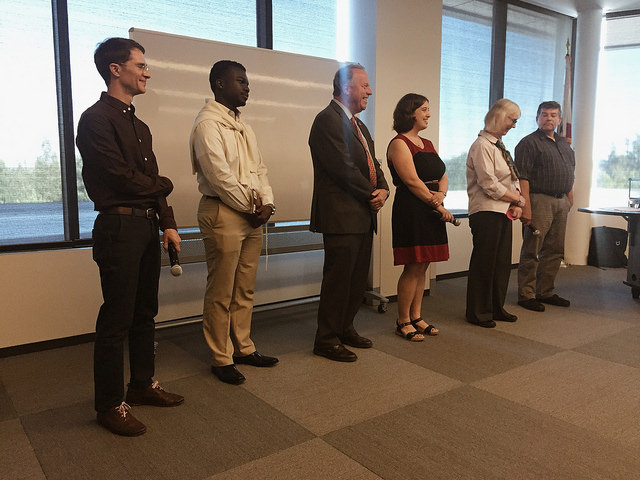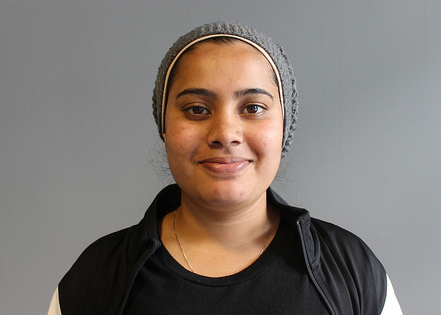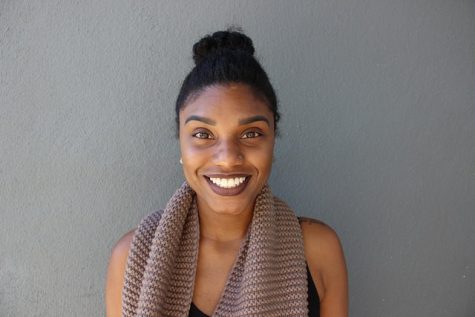State Sen. Bill Dodd joins a panel discussing news literacy at DVC
Pictured from left to right, Cody Hennesy, Kwame Baah-Arhin, Senator Bill Dodds, LiAnna Davis, Mary Mazzocco and Sam Richards. Panelists from the 4cd speaker series on “fake news”
May 6, 2017
The importance of digital media, literacy and fake news are especially relevant in this day and age with everything that has happened in the recent presidential elections and especially hits close to home for Diablo Valley College.
A fake news and media literacy panel was hosted in the Diablo Room as the first event apart of the new Civic Engagement Speakers Series.
Moderated by DVC’s journalism chair Mary Mazzocco, the panel hosted Senator Bill Dodds of the California Senate, Sam Richards of the East Bay Times, LiAnna Davis from the Wiki Education Foundation, Cody Hennesy of the E-Learning and Information studies librarian at UC Berkeley and Kwame Baah-Arhin, the student trustee of the 4CD governing board.
“The topic is very timely. It’s on point. And as you may or may not know DVC has been named in fake news, recently. So we’ve been living through this event over the last two weeks or so,” President Ted Wieden said.
Throughout each speaker’s presentation there were a series of tips on identifying fake news, “if you don’t recognize the name, you should probably be suspicious,” Sam Richards said. “Pay attention to the source, the platform, yourself and the world,” Cody Hennesy said.
During the panel, Senator Bill Dodd of the California Senate, discussed how changes are being prompted in the California school curriculum with the introduction of Senate Bill 135. The bill isn’t meant to tell the Department of Curriculum Standards how to teach digital media literacy.
“(The bill) just says we’ve been doing critical thinking curriculum in our schools all these years and it just hasn’t kept up in the digital age. We need to make sure we have those (digital media literacy) incorporated in the curriculum in first through 12th grade,” Senator Dodd said, “The education of our kids shouldn’t be Republican or Democratic.”
Davis said that there is a difference between digital media savvy and digital media literacy. Being able to use digital media and devices doesn’t necessarily mean that a person is media literate.
“We need to be teaching digital literacy in schools,” Davis said.
“I think the panel went very well,” Interim President Ted Wieden said.
“I was very impressed with the qualifications that the panelists brought. They were some very well qualified individuals with not just theoretical experience but also practical experience.”







































































